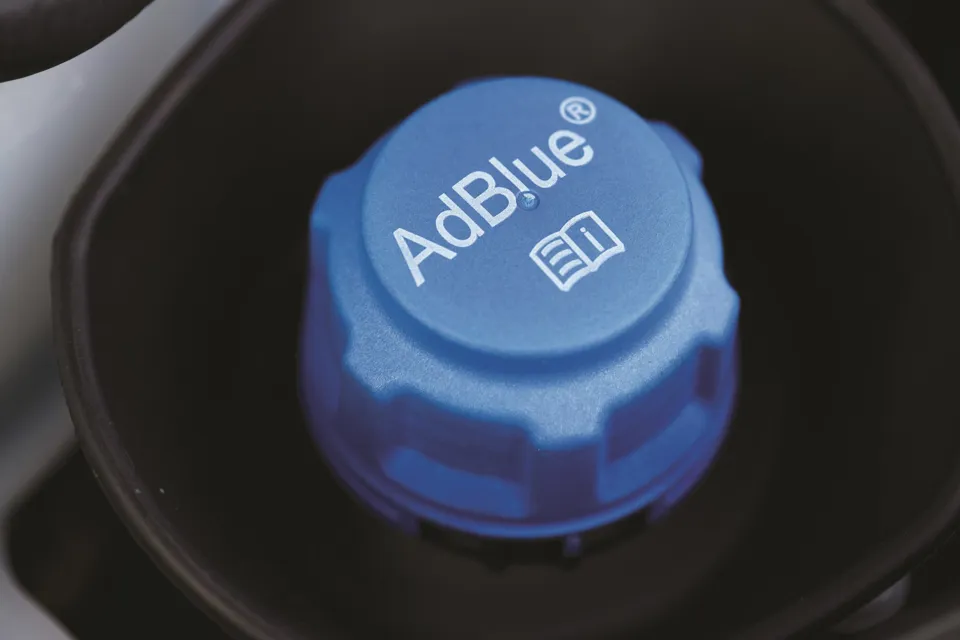ACFO believes there is still a lack of awareness surrounding the diesel exhaust additive AdBlue, with many fleets unaware of the impact it will have on servicing costs.
John Pryor, chairman of the fleet operators’ association, said: “I don’t think fleets are prepared or have given this a lot of thought.”
From September 1 this year, all new cars, plus light commercial vehicles sold in the EU, must be compliant with Euro 6 standards for exhaust emissions.
Unlike previous diesels, many Euro 6 compliant engines require AdBlue to help reduce NOx emissions.
For some fleets the use of AdBlue is not new, with buses and heavy goods vehicles using it for several years.
However, due to the Euro 6 regulations, AdBlue will become an important requirement for many diesel drivers for the first time. Failing to take action when an AdBlue warning appears will result in the vehicle going into ‘limp’ mode or failing to start.
“Most drivers think AdBlue is a screen wash tank and I don’t think managers are aware what sort of impact this
is going to have on service, maintenance and repair (SMR) costs,” said Pryor.
He added that members have already approached ACFO with concerns that running vehicles on variable service intervals has meant they are running out of AdBlue before going in for their regular service.
He told Fleet News: “I’ve been approached by an ACFO member that operates a chauffeur fleet and they’re having to make sure drivers have a top up bottle because of the type of journeys they are making.”
Lex Autolease is placing the onus on company car drivers to make sure they don’t run out of AdBlue.
Russell Adams, commercial vehicle engineer at the leasing giant, said: “We consider AdBlue to be a consumable, similar to fuel. This means it is the responsibility of the driver to ensure AdBlue is kept topped up and to pay any costs associated with doing so.
“It can be bought at retail outlets, dealerships or service stations, and drivers should research their nearest stockist and costs.”
However, some manufacturers are already providing AdBlue free of charge through dealerships.
Vauxhall is offering fleet customers free AdBlue as part of its Service4Fleet aftersales standards. Alternatively, Halfords sells a four-litre top-up bottle for £20.
Matt Sutherland, Alphabet chief operating officer, said AdBlue is a “relatively cheap material”.
He continued: “Cost varies whether you buy in bulk or at service stations but the average price is approximately £1 per litre.
“How much AdBlue is required by each vehicle differs by each make and model. We would expect the cost of AdBlue to be offset by fuel savings achieved from more efficient diesel engines.”
Fleet News’s experience on its long-term test fleet suggests cars will typically require a top up every 5,000 to 8,000 miles.
Diesel vehicles that need AdBlue will automatically alert the driver if the reserve is running low and some models will give the driver notice at 1,000 miles before empty.
Adams said drivers should familiarise themselves with the dashboard warning lights which will alert them to when AdBlue needs to be topped up. The AdBlue tank is usually easily recognised by its blue cover.
Fleets should also be aware that a full AdBlue tank will add extra weight, which can impact on its payload capacity.
Depending on the size of the tank, Sutherland said an average van will have an estimated payload reduction of up to 50kg.
He said: “Fleet managers need to ensure that their organisation’s vehicle policy includes clear instructions around the use and misuse of AdBlue, in the same way that they do currently with mis-fuelling petrol with diesel or adding other fluids like oil.
“Similarly, some drivers, depending on their driving style and the types of journeys they make, will require AdBlue top ups outside of their regular servicing so fleet managers need to consider their policy and how they handle that.”
Tom Seymour

















Login to comment
Comments
No comments have been made yet.